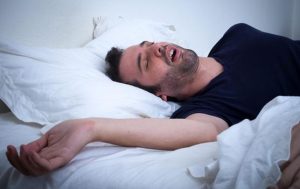How can you improve your Sleep?
That elusive sleep. That time to relax and regenerate. To heal and repair.
If you need that coffee or two (or three) every morning you may get some very useful tips in this post.
Sleep isn’t just important for your mind and body to have energy and be alert. Lack of sleep can contribute to serious health issues which you don’t want.
So let me have your attention for this “tip-filled” post on the importance of sleep and how you can get your fair share. I’ll even throw in an amazing caffeine-free latte recipe for your afternoon “pick me up”.
The science of sleep is fascinating, complicated and growing
Sleep is this daily thing that we all do and yet we’re just beginning to understand all of the ways it helps us and all of the factors that can affect it.
Lack of sleep affects just about everything in your body and mind. People who get less sleep tend to be at higher risk for so many health issues like diabetes, heart disease, and certain types of cancer; not to mention effects like slower metabolism, weight gain, hormone imbalance, and inflammation. And don’t forget the impact lack of sleep can have on moods, memory and decision-making skills.
Do you know that lack of sleep may even negate the health benefits of your exercise program?
Knowing this it’s easy to see the three main purposes of sleep:
● To restore our body and mind. Our bodies repair, grow and even “detoxify” our brains while we sleep.
● To improve our brain’s ability to learn and remember things, technically known as “synaptic plasticity”.
● To conserve some energy so we’re not just actively “out and about” 24-hours a day, every day.
Do you know how much sleep adults need? It’s less than your growing kids need but you may be surprised that it’s recommended that all adults get 7 – 9 hours a night.
How do you know what number is right for you?
When you wake up you should feel refreshed after 30 minutes and if not you might need an extra hour or two. Another good gauge is if you wake up before your alarm in the morning.
There are way too many hormones and pathways that are involved in sleep so let’s not dive into that but just go straight to the practical aspects of improving sleep.
Tips for better sleep
● The biggest tip is definitely to try to get yourself into a consistent sleep schedule. Make it a priority and you’re more likely to achieve it. To do this anchor your wake time every morning meaning that you wake up at the same time daily even if you get to bed late. From that time work backwards 7-9Hrs to get the best sleep. I know weekends can easily throw this off but by making sleep a priority for a few weeks your body and mind will adjust and thank you for it.
● Avoid drinking alcohol 3 to 4Hrs before bed time as it reduces the quality of sleep. Instead try some Tart Cherry Juice or a glass of mild. Both have tryptophan in it which helps promote the production of melatonin which is a sleep promoting hormone.
● Balance your blood sugar throughout the day. You know, eat less refined and processed foods and more whole foods (full of blood-sugar-balancing fiber). Make sure you’re getting some protein every time you eat.
● During the day get some sunshine and exercise. These things tell your body it’s daytime; time for being productive, active and alert. By doing this during the day it will help you wind down more easily in the evening.
● Cut off your caffeine and added sugar intake after 12pm. Whole foods like fruits and veggies are fine, it’s the “added” sugar we’re minimizing. Both caffeine and added sugar can keep your mind a bit more active than you want it to be.
● Have a relaxing bedtime routine that starts 2 hour before your “lights out” time (that is 8 – 10 hours before your alarm is set to go off). This would include dimming your artificial lights, ditching screen time and perhaps reading an (actual, not “e”) book or having a bath.
● If you do need to work late on a computer or in front of a screen try using blue light blocking glasses which will help to reduce the negative effects of the blue light from screens. The blue light starts waking up the brain making it think its day time
● If all that fails and you still are struggling to get to sleep when you put your head on the pillow try the 4 – 7 – 8 breathing technique to reduce stress and calm your body down. Breath in for 4 seconds, hold your breath for 7 seconds and exhale for 8 seconds.
So how many of these tips can you start implementing today and have a great nights sleep?

References:
http://www.thepaleomom.com/gotobed/
